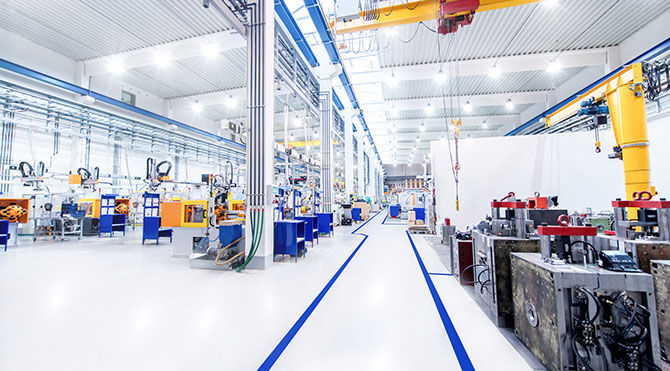Eurozone recovery spurs UK manufacturing to new high
The weakened sterling continues to have an unprecedented effect on manufacturing in the UK. However, positive data in manufacturing accompanies rather muted growth in the construction sector.

Brexit expected to affect Manufacturers in coming months
A survey by the manufacturers’ organisation EEF and the BDO consultancy found output in the third quarter rose by a record 34 per cent, while order books also increased by an all-time high with almost half the companies surveyed reporting a growth in exports to the EU.The survey follows similar findings by the Confederation of British Industry (CBI), which found that British manufacturers had recorded a healthy bounce-back in August.Lee Hopley, EEF chief economist, said, “Manufacturers appear to have taken the recent political upheaval in their stride and are taking advantage of growing world markets to make hay while the sun shines.“We are likely to see a more stable picture in the coming months rather than any further significant acceleration. There is little doubt that Brexit is likely to weigh on sentiment over the next 12 months with uncertainty over the UK’s terms of exit.“As such, it is vital the government sends a signal to industry and investors in the UK and overseas that it is doing everything in its power to get growth of the UK economy back on the agenda. This must include a bold and ambitious cross-government industrial strategy.”Strong growth accompanies a drop in UK economic confidence
Tom Lawton, head of manufacturing at BDO, said, “Despite the economic and political uncertainties, manufacturers continue to be a force to be reckoned with, delivering a strong performance as well as increasing both investment and employment plans to make the most of the strengthening export opportunities available to them.“However, manufacturers’ confidence about the UK economy has continued to fall for the second quarter running.“With growing opportunities around the world, particularly the eurozone, manufacturers need stability and certainty in government policy, including Brexit, to provide the right environment for them to commit to the significant capital and research investment required to support continued growth.”Meanwhile, data from the construction sector showed only lacklustre growth in August with the IHS Markit/CIPS purchasing managers’ index (PMI) standing at 51.1 for the month, down from 51.9 in July. A reading above 50 indicates growth but the sector slowed last month because of a decline in commercial orders.Tim Moore, associate director at Markit, said, “Civil engineering work stagnated, which meant the sector was reliant upon greater house-building activity to deliver an expansion in construction volumes.“Respondents noted the subdued business investment and concerns about the UK economic performance had led to a lack of new work to replace completed projects, especially in the commercial sector.”Related stories:
- UK manufacturers buoyant as export orders rise
- HR directors expect IR35 rules to extend to private sector
- UK consumers tighten belts ... but not manufacturers
The UK’s auto industry, which hit 40-year production highs in 2016, also reported a disappointing August with new car registrations declining for a fifth consecutive month.Some 76,400 new cars were registered last month, down 6.4 per cent on August last year, according to data from the Society of Motor Manufacturers and Traders (SMMT), which has now recorded sales of 1.64 million vehicles so far this year, down 2.4 per cent on the first eight months of last year.Mike Hawes, SMMT chief executive, said, “August is typically a quiet month for the new car market as consumers and businesses delay purchases until the arrival of the new number plate in September.“With the new 67-plate now available and a range of new models in showrooms, we anticipate the continuation of what are historically high levels of demand.”Demand for diesel cars continued to fall steeply amid increasing pollution fears. Sales were 21.3 per cent lower last month than in August 2016. So far this year, diesel sales are 11.5 per lower than in the same period in 2016, while demand for petrol models rose 3.8 per cent and sales of alternatively fuelled vehicles increased 58.3 per cent to achieve a market share of 5.2 per cent.For related news and features, visit our Enterprise section.Access hundreds of global services and suppliers in our Online Directory
 Get access to our free Global Mobility Toolkit
Get access to our free Global Mobility Toolkit 
©2026 Re:locate magazine, published by Profile Locations, Spray Hill, Hastings Road, Lamberhurst, Kent TN3 8JB. All rights reserved. This publication (or any part thereof) may not be reproduced in any form without the prior written permission of Profile Locations. Profile Locations accepts no liability for the accuracy of the contents or any opinions expressed herein.






























